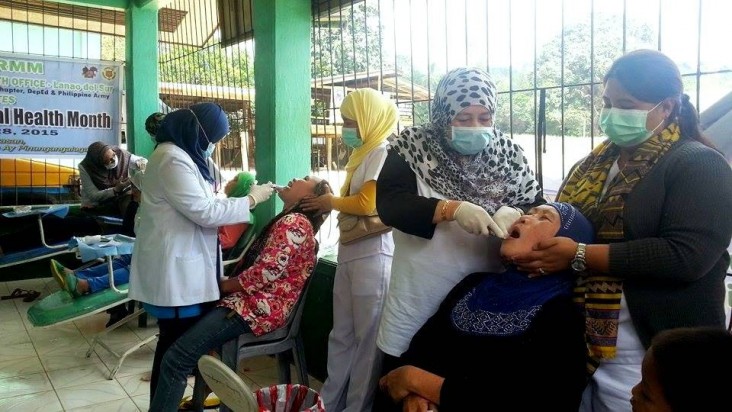Speeches Shim

April 2016—Mindanao, located in the southernmost region of the Philippines, is rich in natural resources, but decades of internal conflict have left local governments unable to provide adequate services to the people, resulting in poor health, high illiteracy, and widespread poverty.
Despite the resulting conflict and instability, people like Aisah Ponce-Macabuat are leveraging their knowledge and skills to uplift their communities.
Ponce-Macabuat, 24, dreams of peace and growth in her hometown of Balindong, a remote municipality in Mindanao with a population of under 30,000 people,
In April 2014, Ponce-Macabuat graduated from a youth leadership program under USAID’s Enhancing Governance, Accountability and Engagement project. The project supports 30 local governments and 20 civil society organizations in six conflict-affected areas of Mindanao to promote good governance and contribute to peace and stability in the region. USAID launched the five-year project in 2013.
Working with the Mindanao Development Authority, a Philippine government agency, the project improves the ability of local governments to deliver services to their constituents and increases public involvement to ensure accountability and transparency. Grassroots activities involve youth and adults to spark civic participation.
As a part of the youth leadership program, Ponce-Macabuat and other interns completed a three-week governance course at Mindanao State University, followed by a three-month internship in Manila, the national capital.
Interns learned about basic government functions, including policy formulation, fund management, and service delivery. They also worked in different service projects, ranging from property tax collection to the management of a women’s crisis center.
When the youth returned home, they launched their own small development projects to foster a culture of good governance. When Ponce-Macabuat arrived back in Balindong, she saw that the community didn’t understand how their government functioned and didn’t know the local resources available to them.
“This limited the government’s ability to respond to people’s needs,” she explained. It also perpetuated negative perceptions about the government.
Ponce-Macabuat decided that a website could allow people to access public documents and services. This, she said, would foster civic engagement and make governance more inclusive. Drawing from her experience in Manila, Ponce-Macabuat mobilized support from city officials and secured funding to hire a web developer. Balindong Mayor Raysalam Mangondatu fully approved the project.
The website was officially launched Nov. 17, 2014, at the municipal hall. “We have been catering to our constituents' priority needs, but still many are not aware of our efforts due to poor information dissemination,” proclaimed Mangondatu. “This website enhances public service in the municipality.”
Since the launch, people can access community events and announcements, and share information with others. The site, which also provides links to the national government, will soon include municipal financial reports.
Ponce-Macabuat, who is now the municipal information officer, acknowledges another benefit. “The more transparent Balindong is about its governance, the more trade, investment and tourism will follow,” she says. “This will uplift people’s lives.”
Thirty-nine young people like Ponce-Macabuat have completed internships since the youth leadership program began. Equipped with the confidence and know-how to connect people with their governing bodies, they are proving to be catalysts for lasting prosperity in Mindanao.
“I have learned that it is not easy to initiate change,” says Ponce-Macabuat, “but giving up should never be an option.”
LINKS
Follow @USAID_Manila, on Facebook, on Flickr, on YouTube

Comment
Make a general inquiry or suggest an improvement.